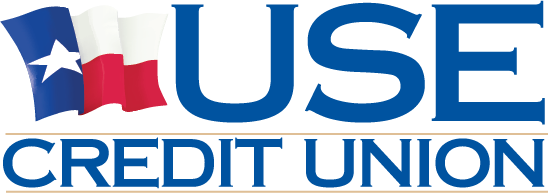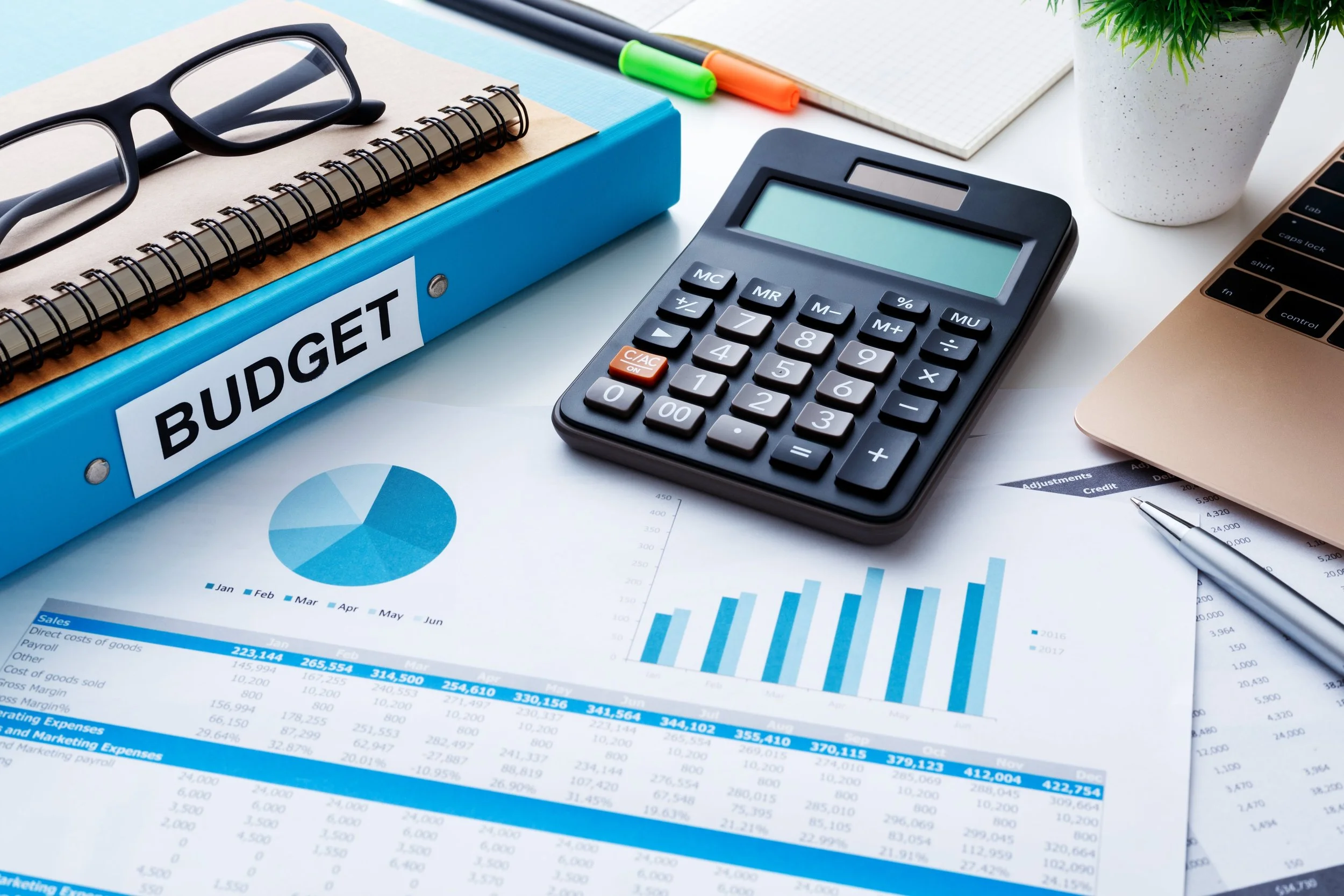Preventing Fraud
Each year, scammers and identity thieves steal billions of dollars from unsuspecting consumers. These criminals use various communication methods to steal information or trick consumers into handing over their money.
Go to mycreditunion.gov to learn how to recognize, report, and prevent fraud, common scams, identity theft, and cybercrimes.
Home Ownership
Finding a home is an exciting experience, but is it right for you?
There are several factors to take into consideration, such as how long you plan to be at your residence and what works best for your financial situation.
Go to mycreditunion.gov to learn more.
Overdraft Protection & Courtesy Pay
We have two affordable options to cover an unexpected shortage of funds in your checking account.
Overdraft Protection
Allows you to link your checking and savings to cover the shortage made by checks, pre-authorized debits, and bill payments, for a nominal transfer fee of $5.
We’ve got you covered with Courtesy Pay!
Whether you’ve made a simple miscalculation or you’ve run into an unexpected emergency, we’ve got you covered with Courtesy Pay*. You never know when a car repair or an urgent medical situation will pop up but it’s good to know that you’ve got a backup plan when emergencies arise. It costs you Nothing.
Courtesy Pay*
Eliminates embarrassment at the checkout line. We will pay a check or allow a transaction to go through even if you do not have enough money in your account, so you’ll avoid the embarrassment of the item being returned or the transaction being declined. The transaction will be paid, including the overdraft fee.
Cash available for emergencies. You can get access to the cash you need in an emergency situation, like a flat tire, running out of gas, home repairs, or minor medical expenses.
Cash available between paychecks. If money is tight in between paychecks, you will have access to money to get you through the next payday. This temporary access to cash can be helpful during a financial gap due to an unexpected expense.
| Fee Type | Cost of NOT Having Courtesy Pay | Cost of USECU Courtesy Pay |
|---|---|---|
| Merchant Returned Check Fee | $35 | $0 |
| USECU Non-Sufficient Funds Fee | $31 | $0 |
| USECU Courtesy Pay Fee | $0 | $31 |
| TOTAL | $66 | $31 |
*Courtesy Pay Fee is $31 per incident. Each charge made when account has a negative balance will incur a $31 fee. If multiple charges are made when the account balance falls below zero, the member will incur multiple fees. Courtesy Pay maximum is typically $500 for accounts opened longer than 90 days; however, could be less depending on the type of checking account. Overdraft fees may be imposed on preauthorized automatic debits, telephone-initiated transfers or other electronic transfers, as well. Additionally, you may opt in to include your debit card transactions and ATM withdrawals. Transactions may not be processed in the order in which they occurred, and that the order in which transactions are received by the institution and processed can affect the total amount of overdraft fees incurred by the consumer. Members may also designate their USE savings account as overdraft protection. If the funds are available, USECU can transfer the needed funds to cover a check or debit for just $5 per transfer. Program is discretionary. Abuse of Courtesy Pay may lead to termination in the program. Accounts left unpaid will be turned over to Collections Department. Accounts left unpaid and negative for 60 days will be closed.
Personal Finance
Use the 50-20-30 Rule
Apply 50% of your take-home pay to needs such as mortgage, rent, utilities, groceries or transportation, 20% to savings, investments, and debt payments, and no more than 30% to your wants or flexible spending, such as travel or entertainment. These are not exact percentages, and you can change them to work for you.
But the rule is a good starting point for creating a financial plan. Go to mycreditunion.gov to learn more.
Saving and Investing
Saving refers to setting aside a portion of your income for future use. Saving money helps you build financial stability and security because these funds can be used for emergencies, major purchases and long-term goals like retirement.
Go to mycreditunion.gov to learn more.
Disaster Preparedness Guide
How To Access Your USECU Account
Disaster Updates
When appropriate, our website will be updated with information before, during & after a disaster.
Be aware that USECU may close some or all of its branch locations in the event of a disaster.
Online Banking
If our main website is down, you can still access your account with online banking.
If possible, we will also post updates on our official Facebook page and Mobile App. Enroll in e-statements in the event that mail services are disrupted.
Telephone Banking
(800) 835-5374, option #1
(713) 595-3400, option #1
Use telephone banking for up-to-date account information from any touch-tone-telephone.
*Daily cash withdrawal limits and other transaction restrictions may also be enforced during a disaster.
Mastercard Debit and Visa Credit Card
Use your Mastercard Debit and Visa Credit Card wherever Visa and Mastercard are accepted.
You will also be able to use your Mastercard Debit Card at any USECU ATM machines.
Co-Op: Shared Branch Network
You can access your account at any of the 5,000+ Shared Branches across the country.
To locate a Shared Branch visit www.sharedbranching.org or call (888) 748-3266.
Emergency Contacts: State and National
Emergency: 9-1-1
National American Red Cross: (866) 438-4636 | www.redcross.org
FEMA Disaster Aid: (800) 621-FEMA (3362) | www.fema.org
Centers for Disease Control: (800) CDC-INFO (232-4636) | www.cdc.gov
Department of State Health Services: (888) 963-7111 | www.dshs.texas.gov
U.S. Dept. of Health and Human Services: (877) 696-6775 | www.hhs.gov
Local
Greater Houston Area Red Cross: (713) 526-8300 | Greater Houston Area Red Cross Website
Harris County Homeland Security & Emergency Management: (713) 881-3100
Galveston County Office of Emergency Management: (281) 309-5002
Harris County Sheriff’s Office: (713) 221-6000
Montgomery County Sheriff’s Office: (936) 760-5800
Galveston County Sheriff’s Office: (409) 766-2300 | (281) 534-3515
Texas Poison Control Network: (800) 222-1222 | www.poisoncontrol.org
Insurance Assistance
National Flood Insurance Program: (888) 379-9531 | www.floodsmart.gov
Texas Windstorm Insurance Association (TWIA): (Claims) 800-788-8247 | www.twia.org
Other Resources
-
Prepare your Finances with USECU
Having your finances in order before a disaster strikes will save you time and frustration.
Establish direct deposit with your employer for quick, reliable access to your money.
Enroll in Telephone Banking & Online Banking for 24/7 access to your accounts by phone and online.
If you receive federal benefits and have not enrolled in direct deposit, visit www.godirect.org to enroll.
Apply for a Mastercard ATM/Debit Card to access cash at ATMs.
Know your account numbers and all associated PINs you have established.
Get extra cash and always have extra checks ready to go if you need to evacuate.
Make sure you are enrolled in Overdraft Protection and Overdraft Privilege. Overdraft Protection allows you to avoid bouncing a check or the decline of a debit card payment because it was for more than the actual balance in your checking account. Overdraft Privilege will allow us to authorize and pay overdrafts on ATM and everyday debit card transactions.
Purchase a Gift Card to use as a non-cash emergency fund or apply for a Visa Platinum Credit Card to have extra line of credit available. Apply now.
Visit www.usecreditunion.com and locate Share Branching locations along your evacuation route. This gives you the option to access your accounts at numerous locations. Certain restrictions and cash limits may apply to these transactions. Have some checks on hand. In the event of a disaster and when the power may be an issue, or merchants cannot process electronic payments, writing a check might be a good option. Place an order and have them on hand.
2. Gather All Important Documents
Having all of your documents up-to-date, organized, and in a waterproof portable container can make a big difference during an evacuation. Documents should include wills, insurance policies, deeds, stocks, bonds, passports or other identifying documents, social security cards, immunization records, and credit union/bank account numbers and contact information. Also include birth, marriage, and death certificates, a copy of your home inventory, and a list of important phone numbers and websites.
3. Verify Your Home Insurance Coverage
Talk to your insurance agent today and make certain that you know and understand exactly what is and what is not covered in your home. Remember that flood insurance is not included in most homeowners’ policies. If you rent, get renters’ insurance.
4. Keep Important Numbers & Websites
Keep a written record of phone numbers and email addresses of family, friends, and co-workers. Also, keep contact information of your local city, county, and state agencies.
5. Create a Disaster Supply Kit
Your kit should include water, non-perishable food items, a manual can-opener, a battery-operated radio, a flashlight, extra batteries, hand tools, tape, clothing, sturdy shoes, bedding, sanitation items, a first aid kit, insect repellent, an ice chest, and a gas can. Also include prescriptions, toiletries, entertainment items, an extra set of car keys, a map, and any special items for infants, a family member with special needs, and/or pets.
6. Create a Home Inventory
Create and maintain an Inventory of your home, both the interior and exterior. You can use a simple pen & paper system with photos, or you can use your computer and a home inventory software. Place the original inventory in a secure place, then make two copies to keep with you if you must evacuate your home. If you plan to take any items with you, make a checklist and keep it with your home inventory.
7. Develop a Family Disaster Plan
Identify ahead of time where you and your family could go if you must evacuate. Choose at least three different places, like a relative’s house or a hotel, and map out a few different routes on how to get to these places. Establish an out-of-town person that can be the point of contact for your family, and make sure everyone has the information in case you get separated from your family. Also include plans for elderly relatives and your pets.
8. Know How to Secure Your Home
Have the appropriate items available to board up your windows and secure garage doors and outdoor items such as garbage cans, lawn furniture, bikes, etc. Know where your water and gas valve shutoffs are located. Also, trim excess trees and shrubs.
9. Fill Up – Gas and Cash
During the threat of a disaster, keep your gas tank at least half full and get extra cash.
10. Protect Your Identity
Evacuations and a lack of home security can put your sensitive information at risk. It’s important to pay attention to all of your personal information. Be sure to go paperless in as many ways as possible. Discontinue paper financial statements, pay bills, and access personal and financial information online only. Identity thieves know that affected areas have been evacuated and are ripe for looting. In the rush to flee with only the essentials, many people leave behind important documents, such as birth certificates and social security cards. Consider storing those items, along with a copy of other important financial or identifying documents in a locked box or large waterproof plastic bag and taking them with you when you evacuate. Be on the lookout for increased “phishing scams” or Relief Group Email Solicitations. Many identity thieves prey on the good intentions of people. You should donate to a reputable organization – only if you are the one to make contact first. Consider purchasing a credit monitoring service or an Identity Restoration Coverage.
Online Security Tips
Proper internet security can help protect you from fraud.
Stay safer with these tips to help protect you online.
As your options for banking and purchasing online grow, so does your need to safeguard your privacy and security while using the internet on your personal computer, tablet or mobile device. Online security can be as simple as frequently reviewing your bank accounts to stay on top of things and making sure you report any fraudulent transactions promptly. But what else should you do to stay safe online or when using a mobile device?
USECU will never ask for your personal information via email or text message. If you have received a suspicious email, text, or phone call, please do not provide any personal information, and call a USECU member service representative directly at 713-595-3400.
The following online security tips can help you protect you while conducting business online.
Use strong passwords for all your accounts. A strong password (one that is not easily guessed by a human or computer) will have 8 or more characters, including letters, numbers and symbols. Make sure to use different user IDs and passwords for your financial accounts and for any other sites you use online, and change them frequently.
Don’t use any part of your Social Security number (or any other sensitive info, like a credit card number) as a password, user ID or personal identification number (PIN). If someone gains access to this information, it will be among the first things they use to try to get into your account.
Don’t respond to emails that claim to be from your credit union (or any other company) requesting your account details. A legitimate company is never likely to approach you this way to ask for personal information.
Be wary of email attachments and free software from unknown sources. You could end up exposing your computer (and the information on it) to online fraud and theft.
Be mindful of how much personal information you share on social networking sites. The more you post about yourself, the easier it might be for someone to use the information you post to access your accounts, steal your identity and more. Maximizing your privacy settings on social networking sites can also help protect your personal information.
Secure your smartphone with a screen lock. Many mobile devices give you the option of locking your screen with a password, helping you keep the data on your smartphone secure.
Keep sensitive personal information and account numbers and passwords off your phone. USECU offers a secure mobile app without having to expose your account information or passwords.
Keep your computer operating system, your internet browser and your mobile device software up to date with the latest security patches. Also, be sure to use anti-virus and anti-spyware software. They help find and remove viruses and spyware that can steal your information.
By following these security tips, you can help protect your personal information and help prevent it from getting into the wrong hands. Please call us immediately at (713) 595-3400 if you suspect information related to your account has been compromised.
Popular Scams: Protect Yourself
USECU will never ask for your personal information via email or text message. If you have received a suspicious email, text, or phone call, please do not provide any personal information, and call a USECU member service representative directly at (713) 595-3400.
Phishing, Smishing and Vishing Attacks
Phishing has been around for decades and involves scammers using email to coerce victims into providing their personal or financial information for purposes of account takeover. Cyber criminals have skillfully figured out how to create emails that look like they’re coming from legitimate sources, including banks, government agencies, and other services an businesses.
More recently, criminals have begun using other popular channels of engagement. One such approach known as “smishing” entails the use of SMS text messaging. Unwitting victims are enticed to call an 800 number or click on a hyperlink, where they are directed to a scam site and asked to provide confidential information. “Vishing” takes a similar tack using voice communication (most commonly Voice over Internet Protocol or VoIP).
Get savvy in recognizing these frauds since often they not only collect your personal and financial information but can also infect your device with malware and viruses.
Tech support scams
If someone claiming to be with a technology company contacts you and wants to diagnose a computer problem you didn’t know you had, or provide tech support you have not requested, stop! If you receive an unexpected pop-up or spam email about an urgent problem with your computer, stop! Scammers are likely using a nonexistent problem to obtain remote access to your computer or banking information.
“You’ve won” scams
If you receive an email stating you’ve won a prize, the lottery, or a sweepstakes, be instantly on your guard if you are asked to pay a fee or tax for the prize, or if there’s a request for your credit card or bank account information. Here, you can win by not falling for this scam.
Healthcare scams
Cyber criminals will usually request your Medicare or health insurance information, social security number, or financial information. Not falling for these scams will give you a skeptical – but healthy – outlook on cyberspace.
Imposter scams
If your first instinct is to help when you receive an email or call from a government official, family member, or friend asking you to wire money, be cautious. Criminals have become experts at impersonating those closest to you by exploiting your personal information available online.
Identity Theft
Signs that you may be a victim of identity theft:
bills for products or services you never purchased
unauthorized withdrawals from your bank
unauthorized charges on your credit card statements
unauthorized charges on your credit card or new accounts in your name – which you never opened
noticing a decrease in the amount of mail or bills you receive
a decrease in the amount of mail or bills you receive, or being rejected, or denied, for a credit application.
Don’t ignore any of these suspicious signals; report them immediately. The longer you wait, the more time-consuming, costly, and exhausting it can be to rectify the situation.
How to Protect Yourself from Scams
Know who you’re dealing with.
Guard your personal information.
Stay safe online.
Check your accounts frequently.
Be cautious about unsolicited emails.
Resist pressure to make a quick decision.
Check your credit reports regularly.






